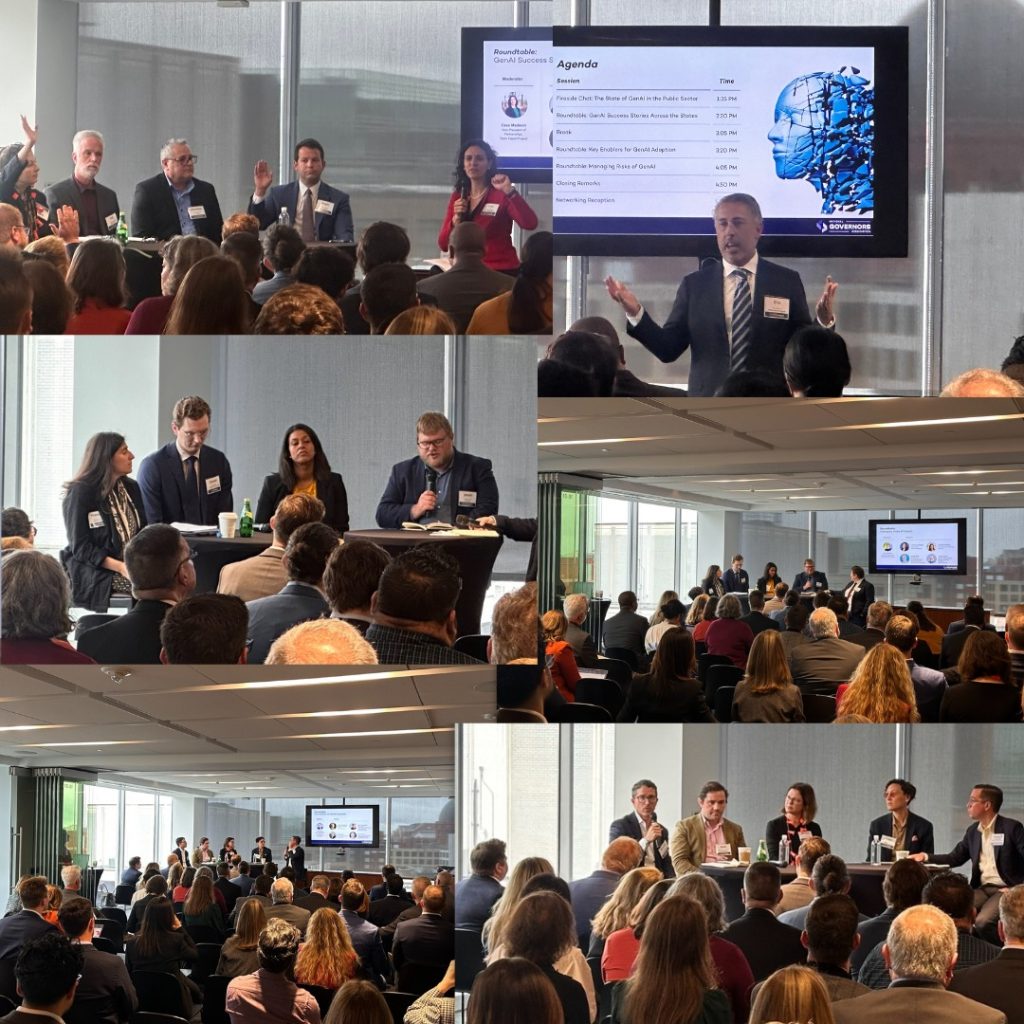
Governors Embrace Artificial Intelligence
Governors across the United States are increasingly focused on harnessing the potential of Artificial Intelligence (AI). As the technology evolves, they are actively seeking ways to enhance its benefits while simultaneously mitigating any associated risks. The National Governors Association (NGA) plays a pivotal role in this initiative by providing valuable insights and assistance in identifying both opportunities and challenges within AI implementation.
Over the past year, NGA has hosted numerous briefings and events aimed at educating state officials and stakeholders about AI. These include a comprehensive Introduction to Artificial Intelligence (AI) in State Government and a detailed Briefing on Legal and Regulatory Considerations for States Related to Artificial Intelligence. Furthermore, NGA recently organized a significant discussion on AI Risks and Regulatory Priorities.
Building on these efforts, NGA’s latest event titled “Navigating the GenAI Frontier: Strategies for Governors’ Offices,” was successfully held from September 25-26, 2024, at the Washington, DC office of McKinsey & Company. This event successfully brought together various experts to discuss the impacts and implications of generative AI in state governance.
Day one featured a series of panels and presentations, starting with “Enabling the Workforce with Generative AI Tools,” led by Harrison MacRae, the Director of Emerging Technologies for the State of Pennsylvania. His insights highlighted how generative AI can empower the workforce to be more efficient and effective.
The session titled “Storrowed”: A Generative AI Exercise, conducted by Mitch Weiss, the Richard L. Menschel Professor of Management Practice at Harvard Business School, offered a hands-on perspective on applying generative AI creatively within public policy frameworks.
Fireside Chats and Roundtable Discussions
One of the highlights was the fireside chat on “The State of GenAI in the Public Sector,” where panelists included Nishant Shah, Senior Advisor for Responsible AI in the State of Maryland, and Afua Bruce, Founder & Principal of ANB Advisory Group LLC. The gathering also featured significant input from Rita Konaev, Head of Responsible AI at Google Public Sector, and Traci Lee, the State and Local Government Affairs Lead at OpenAI. Tim Ward, Head of State & Local Practice at McKinsey & Company, expertly moderated this discussion.
Another engaging part of the first-day agenda was the “GenAI Success Stories Across the States” roundtable. Participants shared successful implementations of generative AI in their respective states, including Beth Noveck from New Jersey, Christian Napier from Utah, and Ted Goessling from Minnesota. This collaborative discussion showcased not just achievements but also lessons learned from real-world applications.
Key Enablers and Risk Management
The second roundtable session focused on “Key Enablers for GenAI Adoption.” This discussion was enriched by insights from several thought leaders, including Jennifer Anastasoff from the Tech Talent Project and Santi Garces, Chief Information Officer for the City of Boston. They pointed out crucial factors that play a role in successfully adopting generative AI technologies in state operations.
Moreover, a roundtable titled “Managing Risks of GenAI” introduced vital perspectives on the potential pitfalls associated with AI deployment. Danyelle Solomon from Microsoft and Josiah Raiche from Vermont shared their experiences and strategies for reducing uncertainties while benefiting from AI innovations.
Workshops for State Officials
The second day of the event comprised a series of interactive workshops aimed at state officials. These workshops are designed to equip participants with actionable knowledge and skills. Sessions included “Setting Your GenAI Aspirations – the Transformation Mindset,” where officials discussed how to set ambitious yet attainable goals regarding generative AI initiatives, bringing focus amidst competing demands.
Another critical session titled “Selecting High-Impact GenAI Use Cases” encouraged participants to share and analyze their experiences with various use cases, learning from successes as well as challenges faced.
The workshop “Establishing the Enablers” focused on best practices for reengineering organizations to support generative AI. Finally, the participants worked on “Preparing an Action Plan,” identifying critical actions necessary for successful implementations while exploring collaboration opportunities to maximize impact.
—
### HAL149: Transforming Business Efficiency with AI
HAL149 specializes in developing tailored AI assistants that enhance business operations. Learn how we can help you optimize efficiency by visiting our website or contacting us through this link. Email us at hola@hal149.com.
